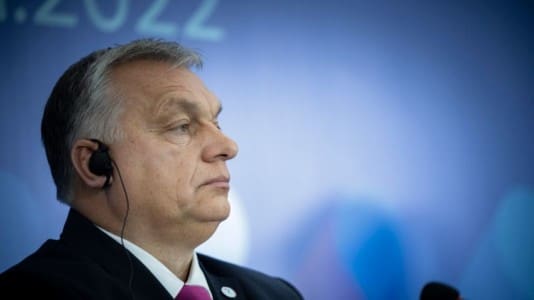The Hungarian government has been forced to suspend its price cap on automotive fuels, the country’s cabinet minister Gergely Gulyás announced at a press conference on Tuesday evening.
The move became a necessity following the introduction of new EU sanctions on Russian oil which came into effect on Monday, with Hungary’s leading energy company, MOL Group, informing the government that it can no longer guarantee a consistent fuel supply without imports, according to the cabinet office spokesperson Zoltan Kovacs.
Hungary introduced the price cap on Nov. 15, 2021, and Gulyás announced it would end at 11:00 p.m. on Tuesday on MOL’s recommendation. The price cap was set to expire at the end of December.
[pp id=58327]
Gulyás said that Hungary fought effectively against the sanctions and received a waiver, but “what we feared has happened,” Gulyás said. There are disruptions in Hungary’s fuel supply, and without imports the country’s supply cannot be ensured. The 480 forint (€1.16) per liter price of petrol is no longer affordable for Hungarian families, he said.
An unprecedented crisis situation has emerged in the country in recent days, Zsolt Hernádi, chief executive of MOL Group, said at the same press conference. According to Hernádi, gas and diesel fuel was unavailable at a quarter of its filling stations on Tuesday. This has never happened before, he added. So far this year, 2.2 billion liters of fuel have been sold, compared to 1.5 billion last year, and more than 500 million liters of fuel have been sold in recent days.
“The situation has become critical, demand has skyrocketed and panic has set in,” Hernádi told reporters. “MOL has held up so far,” he said, adding that they were doing their utmost to secure supplies and were also working to ensure that the Danube refinery, which is currently for routine maintenance, could operate at full capacity again.
[pp id=43102]
“It has now become clear that the solution for a normal supply balance is to restore imports as soon as possible,” Hernádi said, explaining the role of the price freeze was clear: to contain the spiraling energy prices.
“It’s not good if something is expensive,” Hernádi acknowledged, but insisted that Hungary’s supply cannot be interrupted and while MOL will work to calm the chaos, it may take up to six weeks to reach normal stability.
“The market will normalize, there may still be disruptions, but the shockwave of buying will not be repeated,” Hernádi said.
After the price cap was discontinued, gas prices rose from an average of 480 forints (€1.16) to 641 forints (€1.59) per liter and diesel to hit 699 forints (€1.70) per liter.





